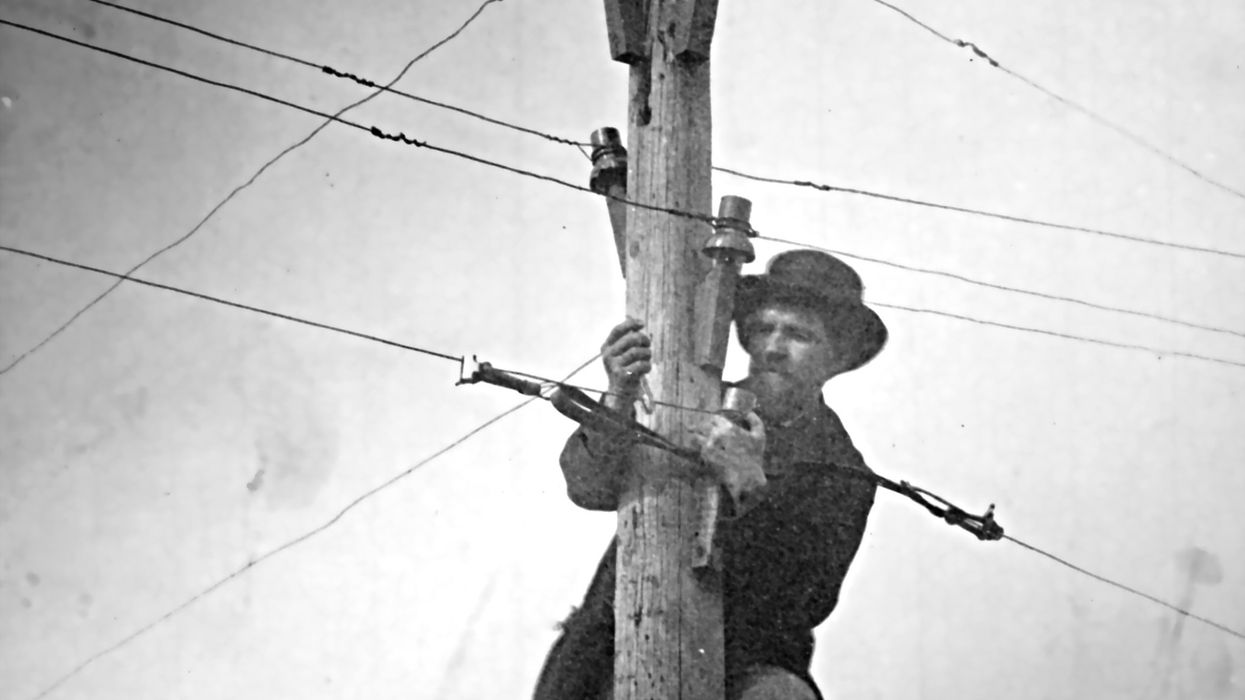Frazier is an assistant professor at the Crump College of Law at St. Thomas University. He previously clerked for the Montana Supreme Court.
March 4, 1847, should be covered in every American history textbook. On that day, Congress assessed the profitability of the telegraph line it helped Samuel Morse build between Washington, D.C., and Baltimore. The ledger was bleak: Looking back at a recent year of messages, Congress had spent $3,925.14 to maintain the line and received just $413.44 in revenue from message fees.
So on that fateful day in 1847, the postmaster general, "confronted by a depressing condition of the postal finances and despairing of legislative support in prosecuting the [telegraph] enterprise as a part of the Postal Service, effected the sale of the Government line," as summarized by a postal commission in 1913.
A few decades later, the short-sightedness of that decision was as obvious as an elephant in a kindergarten classroom. By 1866, Western Union had managed to squeeze out all competition in the telegraph industry, form what would soon be a nationwide monopoly and limit the use of the telegraph to the elite. More importantly, Congress had failed in its mandate to “establish Post Office and Post Roads,” as set forth by Article I, Section 8, Clause 7 of the U.S. Constitution.
That oft-neglected power – the Postal Power – mandates that Congress provide Americans with a marketplace of ideas via the primary channel of information exchange. Let’s break that down. As of 1790, upon ratification of the Constitution, the postal network was the only means of distributing information. It carried the newspaper, magazines, pamphlets, letters, information on Congress, and on and on.
Under British rule, the government exploited the people’s reliance on the postal system by operating it in a way as to make revenue from their search for knowledge. In a major break with the past, the Founders pledged to run the network to encourage the spread of reliable news and to foster democratic discourse. With the passage of the Post Office Act of 1792, the Founders codified their radical vision of a democracy of informed citizens.
That act subsidized the distribution of newspapers and allowed publishers to exchange copies of their papers at no cost so that they could reprint the latest and most informative stories. Importantly, newspapers in that age had a reputation for being nonpartisan. Historian John Nerone suggests that though many of the Founding era papers had a partisan bent, many more avoided such skewed coverage.
In addition to increasing the supply of democratic information, the act also expanded the market itself. In 1788, the United States had just 69 post offices. Thanks to the decision by the Second Congress to directly build a larger market for ideas, that number rapidly expanded – 903 offices had been built by 1800; 4,500 by 1820, and more than 13,000 by 1840.
On the whole, the Post Office Act demonstrated Congress’ recognition of maintaining, expanding and improving the marketplace of ideas. Yet, in 1847, Congress forgot the importance of fulfilling that duty regardless of technological shifts.
In the years since, the marketplace of ideas has moved further and further away from government control. Many folks celebrate that independence as a good thing; yet, those same folks often fail to realize that we’ve simply shifted government control to corporate control. The latter, in my opinion, is far scarier for two main reasons. First, corporations will always be governed by a profit mandate. And, second, corporations are unaccountable to Average Joes and Janes via the ballot box.
As we enter a new technological paradigm in the Age of AI, we need to ask who should operate the marketplace of ideas. If this marketplace fails, then our democracy will be imperiled. That’s an outcome we cannot tolerate. Maintaining a marketplace of ideas isn't cheap (we learned that in 1847), but a deliberative democracy is worth every penny (a daily lesson).




















Trump & Hegseth gave Mark Kelly a huge 2028 gift